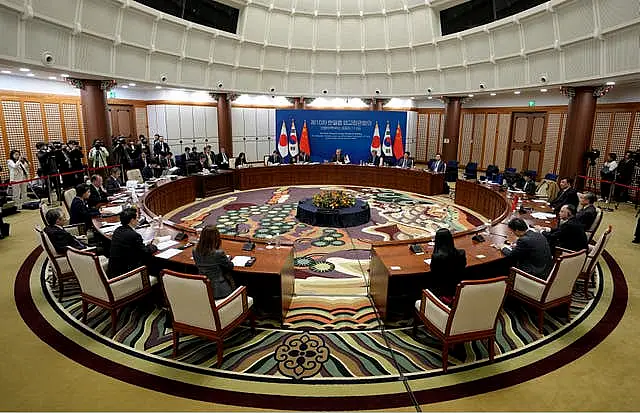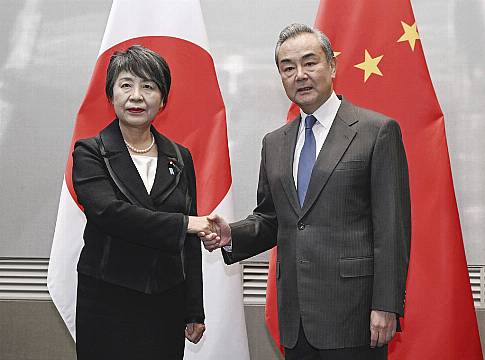Top diplomats from Japan and China met for bilateral talks on Saturday to try to resolve disputes including China’s ban on Japanese seafood, which has hit Japanese exporters.
Japanese foreign minister Yoko Kamikawa and her Chinese counterpart, Wang Yi, met in South Korea’s southern port city of Busan. They will join their host, Park Jin, for three-way talks on Sunday.
Ms Kamikawa, who took office in September and met with Mr Wang in person for the first time, said their meeting was “extremely meaningful.”
She said they had agreed to start security and economic meetings, but gave no details.

Japanese and Chinese leaders met 10 days ago in San Francisco, on the sidelines of the Asia Pacific Economic Cooperation summit, and achieved a vague agreement on easing the seafood dispute.
China’s ban on Japanese seafood has been in place since the tsunami-hit Fukushima nuclear power plant began discharging treated radioactive wastewater into the sea on August 24.
Japan says the waste water is much safer than international standards and that the International Atomic Energy Agency has concluded the environmental and health impact of its release is negligible.
China calls the discharge “nuclear-contaminated water”.
Mr Wang said China opposed Japan’s “irresponsible action” of releasing the wastewater into the sea, according to a readout of the meeting by the Chinese Foreign Ministry.
He called for an independent monitoring mechanism for the wastewater release.
Mr Wang said China and Japan should establish that they “are co-operative partners rather than threats to each other, and they should be committed to peaceful development”.
The foreign ministers from Japan, South Korea and China will meet on Sunday to set the stage for resuming a trilateral summit of their leaders, which has not been held since 2019 due to the Covid-19 outbreak and their complicated ties.
Japan, South Korea and China are close economic and cultural partners, but their relationships have suffered on-and-off setbacks due to a mix of issues, including Japan’s wartime atrocities, the US-China rivalry and North Korea’s nuclear and missile programmes.







